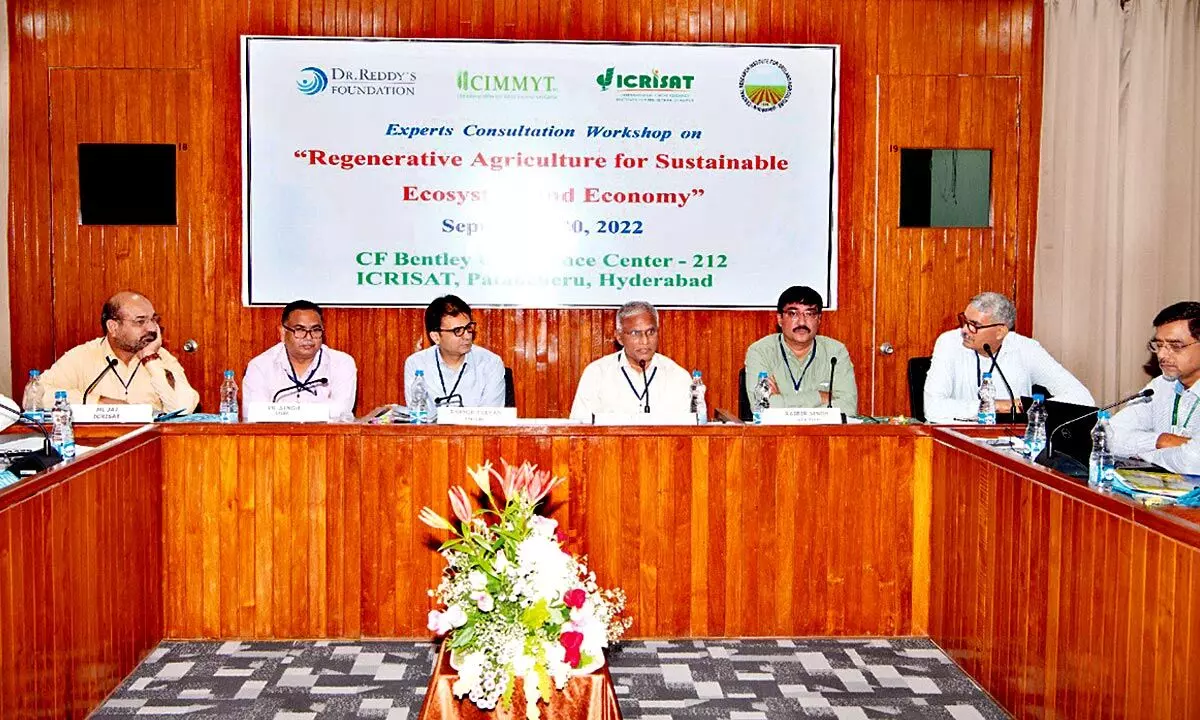Dr Reddy's CSR wing holds agri meet
Dr Reddy’s Foundation, International Crop Research Institute for Semi-Arid Tropics (Icrisat), International Maize and Wheat Improvement Centre (CIMMYT) and ICAR-Central Research Institute for Dryland Agriculture (CRIDA) recently met at Icrisat in Hyderabad to discuss about “Regenerative Agriculture for Sustainable Ecosystem and Economy.”
image for illustrative purpose

Hyderabad: Dr Reddy's Foundation, International Crop Research Institute for Semi-Arid Tropics (Icrisat), International Maize and Wheat Improvement Centre (CIMMYT) and ICAR-Central Research Institute for Dryland Agriculture (CRIDA) recently met at Icrisat in Hyderabad to discuss about "Regenerative Agriculture for Sustainable Ecosystem and Economy."
The event aimed at encouraging experts to have an open dialogue about their learning's, elaborate on adaptation strategies and explore meaningful collaboration. Dr Reddy's Foundation (DRF) was established in 1996 by Dr Kallam Anji Reddy, a scientist, entrepreneur and founder of Dr Reddy's Laboratories Limited.
Dr Reddy's Foundation said, the event detailed the need for scaling regenerative agriculture for food security and sustainable ecosystem. It also addressed the challenges of implementing regenerative agriculture especially by farmers with small and marginal land holdings. Agriculture scientists and practitioners discussed and shared methods, tools and technologies.
The delegates included Dr M L Jat, Global Research programme director, RFFS, Icrisat; Dr Vinod Kumar Singh, director, ICAR-CRIDA; Dr Rajbir Singh, director, ICAR - Atari), and Dr Mahesh Kumar Gathala, senior scientist, CIMMYT.
The Foundation further informed that the key takeaways of the roundtable included need for consensus building on implementation of regenerative agriculture for carbon credits, mapping opportunities for regenerative agriculture nationally and identifying new potential areas that can generate carbon credits.
The roundtable also discussed the development of package of practices, framework and management protocols suited for different cropping systems encouraging regenerative agriculture, building community of practice, implementing common measurement, reporting, and verification (MRV) and uniformity in MRV mechanisms and neutral platform to enable tangible carbon credits to farmers, the not-for-profit organisation said.
The development of a white paper was also spoken about – policy with clear timelines of realising carbon credits for farmers, evolving markets and demand for the improved quality of credits, strengthening of extension support system at national, State and regional level through whole farm analysis including livestock.

